The views expressed in our content reflect individual perspectives and do not represent the authoritative views of the Baha'i Faith.
How, everyone wants to know these days, do we separate fact from fiction? In a world filled with falsehoods, how do we identify what’s really true?
Philosophers, social scientists and psychologists have tried to answer these two critically important questions for many years. To live a truth-based life, of course, we all need to use reasoned, useful fact-finding criteria—good standards of judgment for determining the difference between fact and fiction. The Baha’i teachings directly address those questions in a talk on the subject given by Abdu’l-Baha at the Green Acre School in Eliot, Maine on August 16, 1912. Abdu’l-Baha’s seminal talk began this way:
Every subject presented to a thoughtful audience must be supported by rational proofs and logical arguments. Proofs are of four kinds: first, through sense perception; second, through the reasoning faculty; third, from traditional or scriptural authority; fourth, through the medium of inspiration. That is to say, there are four criteria or standards of judgment by which the human mind reaches its conclusions.
The senses; reason; authority; or inspiration—these four “ways of knowing”—can also serve as a guide to everyone who wants to determine what’s true and what’s not. This simple, understandable guide categorizes the ways we attempt to know the truth and prove its veracity. So in the final four essays in this series, we’ll explore each one of these truth-knowing methods, ascertain their usefulness and value, and examine how to apply them in practical, real-world situations.
RELATED: The Four Methods of Acquiring Knowledge
First, let’s look at the human senses. We all rely on our outer senses—sight, smell, touch, taste and hearing—to determine our take on reality. Especially for children, first-hand observation generally defines the truth. If we can see it, feel it, smell it, taste it or hear it, that means it’s real. After all, our senses provide us with direct awareness of the material world outside ourselves—don’t they?
Philosophers call this point of view naïve realism. They use the word naïve to indicate that belief in only what the senses can perceive actually limits our perceptions dramatically. For example: have you ever used a dog whistle? We humans can’t hear the high pitch a dog whistle makes, but dogs certainly can, because their hearing is much more well-developed than ours. In fact, animals generally have much better sense organs than people. A hawk’s sharp eyes can see things we can’t; dogs have a much more acute sense of smell; a rabbit’s sensitive ears can hear many sounds when we hear only silence.

We know, because of our human intelligence and because of the discoveries of science, that many realities exist far beyond the limited reach of our sense organs. X-rays, sound waves, even the wireless technology that powers our mobile phones—none of those things make sense to the naïve realist, who would have to deny their existence because it’s not “sensible.”
In one of his talks on the four ways of knowing the truth, Abdu’l-Baha said:
The first criterion is that of the senses; that is, all that the eye, the ear, the taste, the smell and the touch perceive is called “sensible.” At present [1906] all the European philosophers hold this to be the most perfect criterion. They claim that the greatest of all criteria is that of the senses, and they regard it as sacrosanct. And yet the criterion of the senses is defective, as it can err. For example, the greatest of the senses is the power of vision. The vision, however, sees a mirage as water and reckons images reflected in mirrors as real and existing; it sees large bodies as small, perceives a whirling point as a circle, imagines the earth to be stationary and the sun to be in motion, and is subject to many other errors of a similar nature. One cannot therefore rely implicitly upon it.
But we’re all human, right? If we can sense it, we want to believe in its reality. Most people just naturally fact-check their perceptions this way, determine the truth by making a sensory judgment about something, and then seeing whether it corresponds to reality.
RELATED: What Is Reality – and Can Our Senses Understand it?
Here’s the problem: the relatively weak human sensorium, science has proven, misses or misperceives a huge amount of “sensible” information. Our minds, fairly easily deceived by that faulty sensory input, often come to the wrong conclusions when we rely solely on what we can physically perceive.
This fundamental problem—the fallibility of our senses—has plagued materialistic philosophy since it began. From a materialist perspective matter is primary, and concepts like mind, soul or spirit are only ephemeral. To a materialist, an idea has no independent existence of its own, but only comes from an electrical impulse in the brain. To a materialist, humans are bound by nature just as animals are.
By contrast, the idealist philosophers believe that spirit, soul, mind and ideas are primary, and matter secondary. The idealists believe more in our higher rational and spiritual faculties, and trust them to determine the truth, where the materialists rely primarily on the physical.
Do you consider yourself a materialist or an idealist? For materialists, who rely entirely on the senses, life and the world are limited to what we can perceive. For idealists, much more exists beyond the façade of the physical. Abdu’l-Baha wrote:
Man is endowed with volition and memory; nature has neither. Man can seek out the mysteries latent in nature, whereas nature is not conscious of her own hidden phenomena. Man is progressive; nature is stationary, without the power of progression or retrogression. Man is endowed with ideal virtues—for example, intellection, volition, faith, confession and acknowledgment of God—while nature is devoid of all these. The ideal faculties of man, including the capacity for scientific acquisition, are beyond nature’s ken. These are powers whereby man is differentiated and distinguished from all other forms of life. This is the bestowal of divine idealism, the crown adorning human heads. Notwithstanding the gift of this supernatural power, it is most amazing that materialists still consider themselves within the bonds and captivity of nature. The truth is that God has endowed man with virtues, powers and ideal faculties of which nature is entirely bereft and by which man is elevated, distinguished and superior. We must thank God for these bestowals, for these powers He has given us, for this crown He has placed upon our heads.
In the next essay in this series on finding the truth and the facts, let’s look at our rational human faculties, and examine whether they have the capacity to decide what’s true and what’s false.





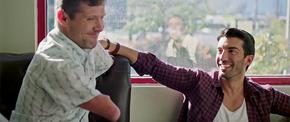


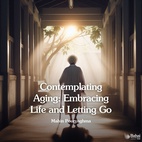

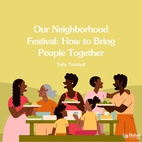
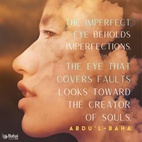

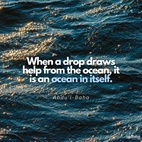
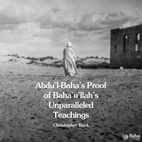


Comments
Sign in or create an account
Continue with Googleor